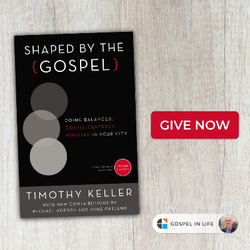
The Fidelity of Jesus

Moral reformation is the main source in the world for many good things, like honesty, self-control and generosity. This kind of reformation enforces rules. One wants to obey out of self-interest or out of fear. On the other hand, spiritual transformation consists of a deeper heart change. When the heart changes, then one’s life, including actions and behavior, changes. In short, moral reformation happens by looking at rules; spiritual transformation happens by looking at Jesus (2 Corinthians 3:18).
We’re going to look at Jesus in today’s passage from Mark 14 when Jesus’ disciples fall asleep. They were supposed to be keeping watch. Something utterly shocks Jesus and he says that it is his time to die. It comes upon him suddenly. There are three words that give us clues to what’s happening in this passage: the cup, Abba, and began.
This sermon was preached by Dr. Timothy Keller at Redeemer Presbyterian Church on May 10, 1998. Series: The Fruit of the Spirit – The Character of Christ. Scripture: Mark 14:32-42.
Today's podcast is brought to you by Gospel in Life, the site for all sermons, books, study guides and resources from Timothy Keller and Redeemer Presbyterian Church. If you've enjoyed listening to this podcast and would like to support the ongoing efforts of this ministry, you can do so by visiting https://gospelinlife.com/give and making a one-time or recurring donation.
Featured Offer

Archives

 Learn How
Learn How
Featured Offer



